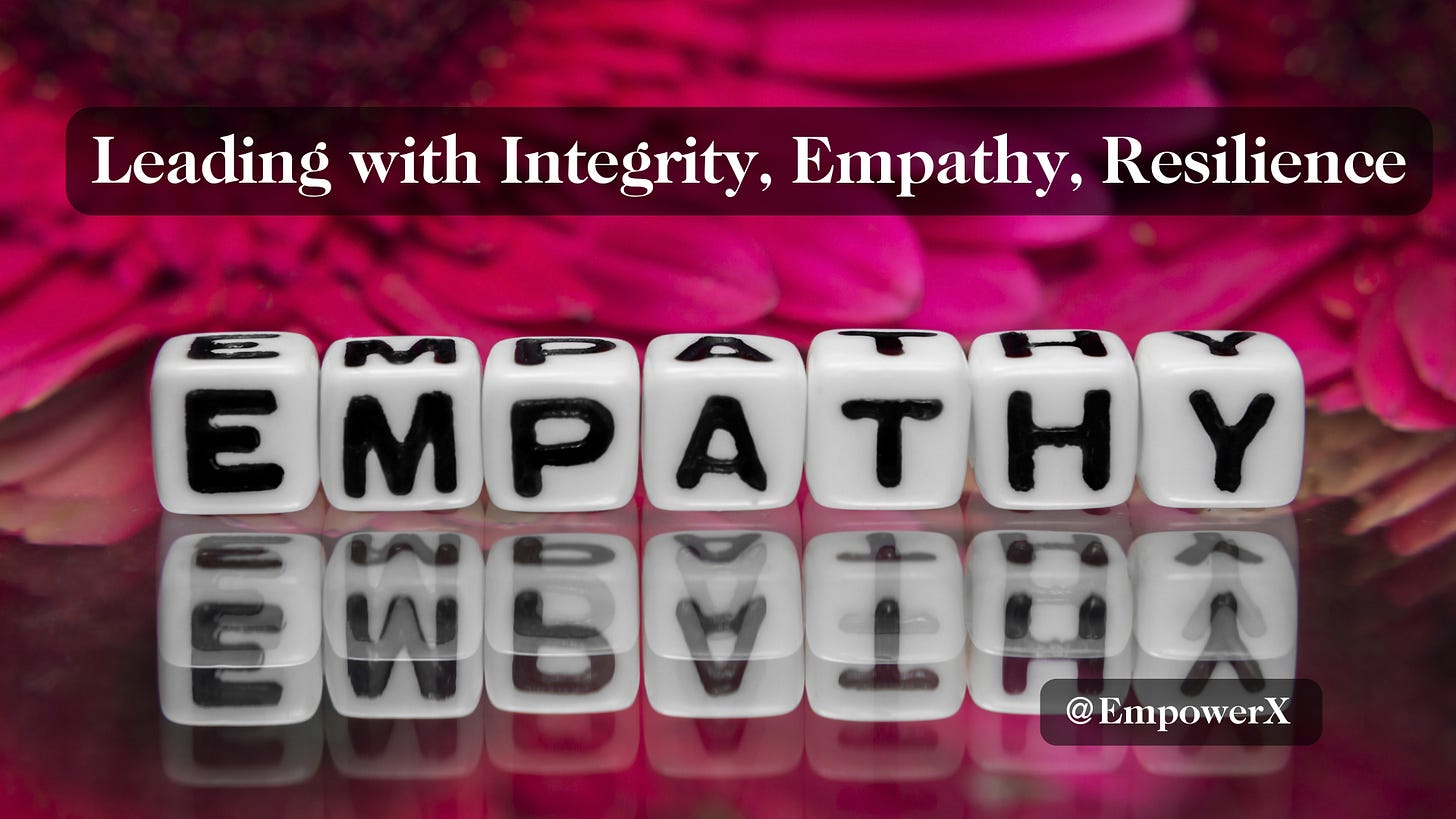Leading with Integrity, Empathy, and Resilience
My Lessons in Leadership from Post-Communist Poland
In the transformative era of post-communist Poland, where I grew up, leadership was not a concept you studied in textbooks.
It was a lived experience, a daily negotiation between the old and the new, the certain and the unknown.
This vessel of change didn’t just shape my understanding of leadership; it redefined it.
In a world where every day was a lesson in resilience, integrity, and empathy, I learned that true leadership transcends the confines of conventional wisdom.
We often read about leadership as a skill to be honed, a set of strategies to be mastered. But what happens when the rulebook changes overnight? In Poland, as the iron curtains fell, so did many traditional notions of leadership. This was not a gradual evolution; it was a radical shift that demanded an immediate response. It was here, amidst this tumultuous change, that my leadership journey began.
Conventional leadership often glosses over the human element. It focuses on results, often at the expense of relationships. But what I learned in those formative years was that integrity, empathy, and resilience are not just buzzwords; they are the foundation of effective leadership.
Integrity: The Unshakable Foundation
Growing up, I saw firsthand the consequences of leadership without integrity. The communist regime, with its opaque agendas and rigid control, was a textbook example of leadership gone awry. As Poland transitioned to democracy, the craving for genuine, transparent leadership was palpable.
Integrity became my compass. In the corporate world, it’s easy to get lost in the pursuit of profits and prestige. But true leadership is about making the right choices, even when they’re not the easiest. It’s about standing by your values, even when the tide is against you. This, I believe, is the cornerstone of trust and credibility.
Empathy: The Connection That Transforms
Empathy was a scarce resource during communism. The system was not built on understanding or compassion. But as the walls came down, so did many emotional barriers. I learned that empathy is more than just understanding others’ feelings; it’s about truly connecting with their experiences.
In business, empathy often takes a back seat to efficiency and competitiveness. But I argue that empathy is a strategic asset. It’s what enables us to understand our customers, our employees, and our stakeholders on a deeper level. Empathy allows for more inclusive decision-making, fosters loyalty, and often leads to more sustainable solutions.
Resilience: The Art of Graceful Tenacity
If there’s one thing post-communist Poland taught me, it’s resilience. The country’s transformation was not smooth. It was fraught with challenges and setbacks. But it was the unwavering spirit of the people, their resilience, that propelled Poland forward.
In the corporate world, resilience is often mistaken for sheer persistence. But there’s a nuanced difference. Resilience is not just about enduring hardships; it’s about adapting to change, learning from failure, and emerging stronger. It’s about having the tenacity to pursue your vision, but the flexibility to pivot when necessary.
Redefining Leadership
Here’s the controversial part: the traditional leadership model is inadequate for today’s complex, rapidly changing world. The top-down, command-and-control approach is a relic of the past. The future belongs to leaders who are authentic, who lead with empathy and resilience, and who understand that their role is not just to direct, but to inspire and empower.
My journey in post-communist Poland was more than just a personal evolution. It was a testament to the power of leadership that is rooted in integrity, nurtured by empathy, and strengthened by resilience. This, I believe, is not just the way to lead businesses but to forge societies that are more robust, compassionate, and inclusive.
New Leadership Paradigm
As we navigate the complexities of the 21st century, the lessons from Poland’s transformation are more relevant than ever. I challenge today’s leaders to look beyond the traditional metrics of success. Ask yourself: Are you leading with integrity? Are you connecting with empathy? Are you adapting with resilience?
The time has come to redefine leadership. Let’s move away from the outdated models of the past and embrace a leadership style that is humane, adaptive, and transformative. Let’s lead not just with our minds but with our hearts and souls.
Magdalena’s Manifesto:
I believe that every leader has a positive, long-term impact on their organization and community.
I am thrilled to bring my experience and passion to the table. I’ve coached and consulted with over 100+ thought leaders, managers, and educators. Click here and let’s talk



